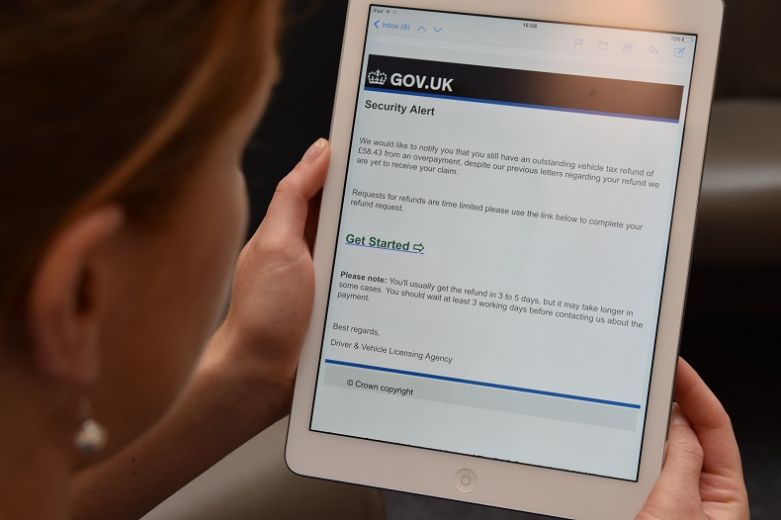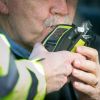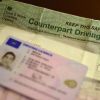The scams range from asking drivers to verify their driving licence details or offering vehicle tax refunds, to claiming there's been a failed vehicle tax payment as an excuse to ask for bank details.
This comes as new figures released by the agency for the three months to September this year, show a worrying 603% increase in reports to their contact centre for fraudulent emails, texts and phone calls, compared to the same period in 2019.
Public reports of email scams saw the biggest rise from July to September 2020 compared with same three months last year, jumping from 603 to 3,807 – an increase of 531%.
DVLA is reminding customers they should report any suspicious emails they receive to the National Cyber Security Centre (NCSC) via their suspicious email service.
Here's a look at some of the fraudulent communication which has been making the rounds:
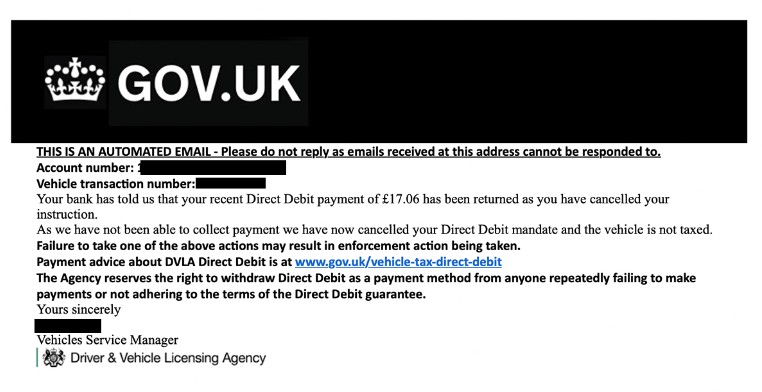
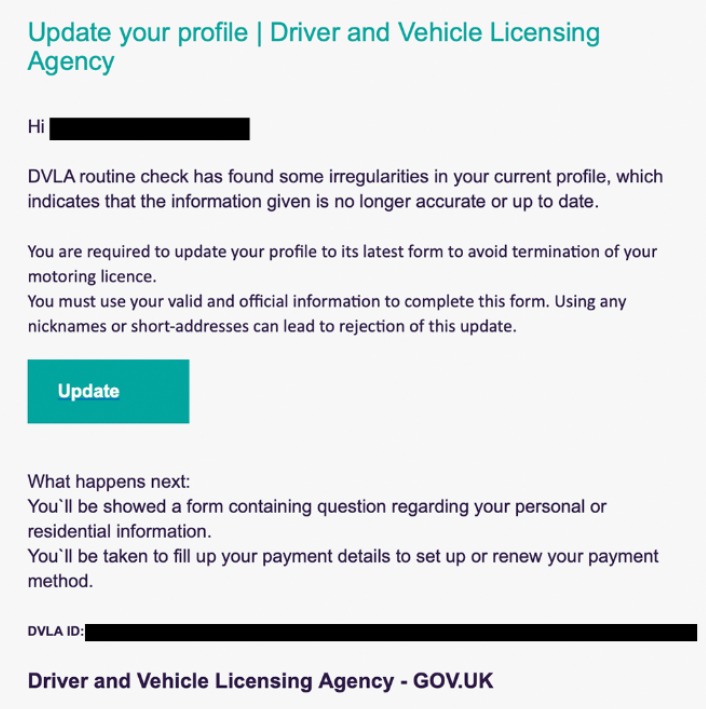
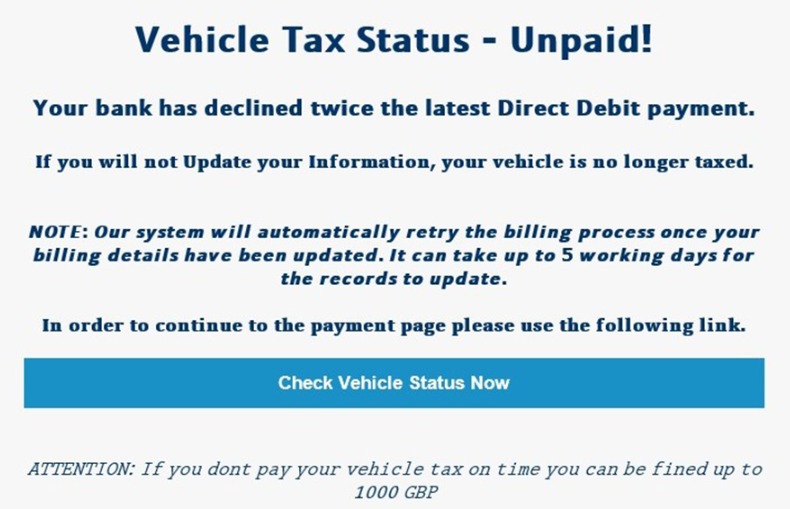
In contrast, reports of fraudulent texts decreased from a total of 653 between July and September 2019, to 510 in the same period this year. The NCSC encourages customers to forward suspicious text messages to their network provider to investigate, on 7726 free of charge.
Customers are advised the only place to access official information on DVLA and its services is GOV.UK. The agency never asks for bank details over email and never sends text messages about vehicle tax refunds.
As well as forwarding any suspicious emails and texts, DVLA has five top tips for motorists to stay safe online:
- Never share driving licence images and vehicle documents online
- Never share bank details or personal data online
- Avoid websites offering to connect to DVLA’s contact centre
- Only use GOV.UK when looking for DVLA contact details
- Immediately report it to the police via Action Fraud if you think you have been the victim of a scam.
Phil Morgan, Head of Fraud Policy Investigation at DVLA, said: “These new figures demonstrate that scammers are becoming more persistent in their efforts to target motorists.
“These more recent scams may at first seem legitimate, however they are designed to trick motorists into providing their personal details. We never ask for bank or credit card details via text message or email, so if you receive something like this, it’s a scam.
“Customers should report suspicious emails to the NCSC immediately. Anyone concerned they may have been a victim of fraud should contact the police via Action Fraud straight away.”
- Revealed: 7 tips to avoid online car scams
- Avoid car scams and frauds with these top tips
- Car insurance scams and frauds
Sarah Lyons, NCSC Deputy Director for Economy and Society, said: “It’s important to stay vigilant to suspicious messages as we know that criminals often imitate legitimate organisations like the DVLA to make their scam seem more convincing.
“Sometimes it can be difficult to tell if you’ve received an untrustworthy email or text message, but our latest guidance gives advice on how to spot the signs of a scam.
“I’d also urge the public to continue to forward anything they think doesn’t look right to our Suspicious Email Reporting Service, report@phishing.gov.uk, so we can take action to remove online scams.”
Have you received a scam email? Do you think more can be done to educate drivers about what to look for in in a fraudulent email? Let us know what you think in the comments below.

RAC sale – up to 33% off*
• Roadside cover from £5.29 a month†
• We get to most breakdowns in 60 mins or less
• Our patrols fix 4/5 breakdowns on the spot


